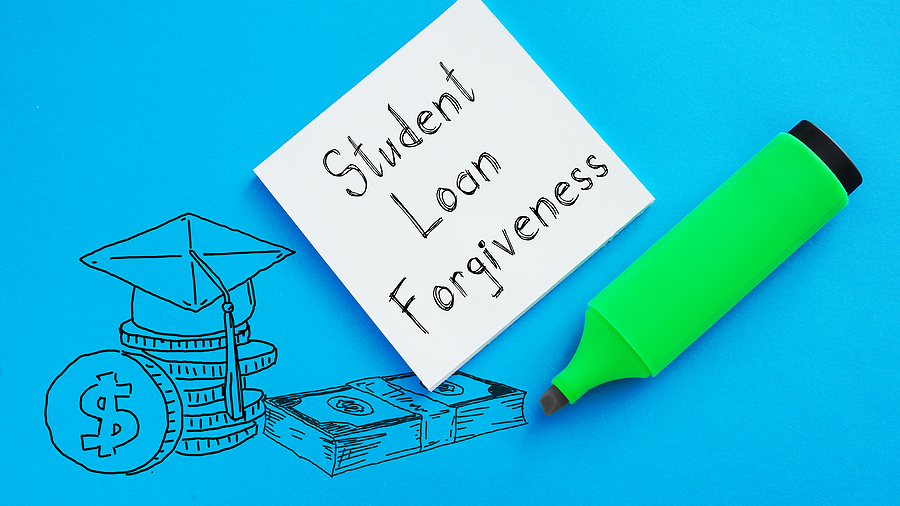
If you have a federal student loan, you’ve probably been equally excited and confused about all the loan forgiveness announcements in recent years. Since 2023, the Biden administration has announced plans to forgive more than $153 billion in federal student loan debt, but some of the proposed programs are pending due to legal challenges from political opponents.
As you wait for things to shake out, you can still be proactive in looking for loan forgiveness options. We recommend checking to see what you’re currently eligible for and taking steps to ensure that you’re ready when new programs become available.
New Loan Forgiveness Options
Some of the new forgiveness proposals are in legal limbo, meaning that they can’t be implemented yet. That includes the Saving on a Valuable Education (SAVE) program and Borrower Defense to Repayment Loan Discharge. However, you can still apply and enroll for these programs at StudentAid.Gov while you wait to see what happens.
Here are the other policies you can look into now:
- Expansion of Public Service Loan Forgiveness (PSLF): This long-standing program can now give you credit for more or your past loan payments. The employment requirements have also expanded to include more borrowers.
- Income-Driven Repayment (IDR) Forgiveness: Your loan balance is automatically forgiven if your loans aren’t fully repaid after either 20 or 25 years, depending on the loan type. Payments you made during deferment or a special payment plan can also be counted.
- Fresh Start: Available through September 30, 2024, this program removes federal student loans from default and collections and gives you a chance to qualify for repayment plans and loan forgiveness. Note that it can take up to 6 weeks for applications to be processed.
Other Loan Forgiveness Programs
While you’re waiting to see what unfolds with the new plans, you can check to see if you already qualify for an older forgiveness option. There are a handful of forgiveness programs for federal student loans, including but not limited to the following:
- Teacher Loan Forgiveness: Teachers who’ve worked full-time for five years in a qualifying school may be eligible for forgiveness up to $17,500.
- Closed School Discharge: You can have loans discharged if you went to a school that closed while you were enrolled or shortly after you withdrew.
- Total and Permanent Disability (TPD) Discharge: Borrowers who are totally and permanently disabled may qualify to have their federal student loans discharged and/or their TEACH Grant service obligations.
You can find the full list of student loan forgiveness programs at StudentAid.gov, on their Student Loan Forgiveness page.
How Do I Apply for federal student loan help?
The steps you take to apply depend on the program you’re interested in. For Income-Driven Repayments (IDRs), you can apply online in 10 minutes or less at StudentAid.gov. You may be required to upload income documents there as well.
If you have a Parent PLUS loan, Federal Perkins loan or FFEL program loan, you’ll need to consolidate into a Direct Consolidation Loan before you apply for an income-driven repayment.
Here’s how you can apply for other programs:
- Federal Perkins Loan Teacher Cancellation: Contact the school that gave you the loan or reach out to the school’s Perkins Loan servicer.
- Public Service Loan Forgiveness (PSLF): Use the PSLF Help tool to complete your forms online and to send your employer their required form.
- Fresh Start: Apply at myeddebt.ed.gov or by calling 1-800-621-3115.
- Total and Permanent Disability (TPD) Discharge: Complete a discharge application and submit it to Nelnet at disabilityinformation@nelnet.net, along with your supporting documentation.
Where Can I Get Help?
If you have more questions about student loan forgiveness or repayment, there are plenty of free and low-cost resources available. You can visit StudentAid.Gov for answers to frequently asked questions. For one-on-one support, schedule a Student Loan Counseling session with an NFCC-Certified Credit Counselor. During your appointment, you can explore your best options for managing student debt, including income-driven repayment plans, loan consolidation and loan forgiveness.

